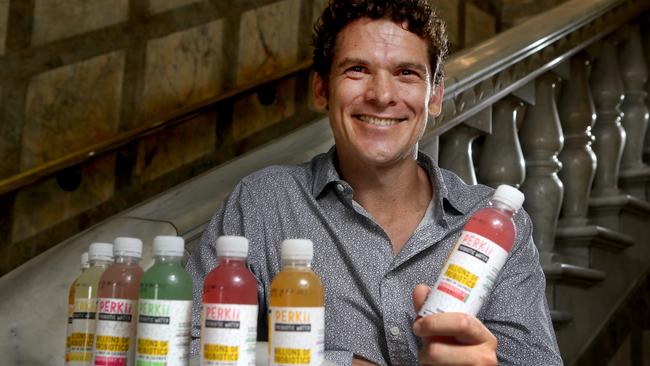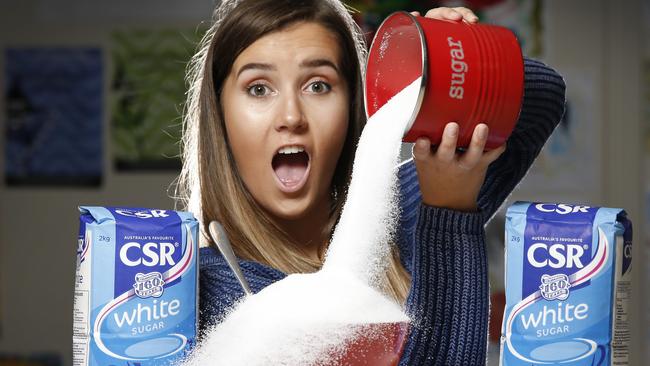Why a sugar tax could be good for businesses
YOU can’t deny that a sugar tax would help tackle Australia’s obesity crisis, but it could be great for business too, writes Dr Peter Devine.

Business
Don't miss out on the headlines from Business. Followed categories will be added to My News.
THERE is little deniability that sugar consumption is directly linked to Australia’s obesity crisis and other weight-related chronic health problems, such as type 2 diabetes and cardiovascular disease.
So why are we still debating a proposed tax on sugar-sweetened drinks?
PERKII TAKES ON $50B PROBIOTICS INDUSTRY
Why — when research is telling us a 20 per cent rise in the price of these beverages over 25 years could save hundreds of lives, prevent thousands of heart attacks, save the healthcare system more than $600 million, while also generating a further $500 million in revenue per year — is there even a point of contention?
Putting aside arguments from anti-nanny state individuals, the truth is sugar is good for business. That’s if your business is a beverage powerhouse or somehow tied to the nation’s sugar industry.
What we haven’t heard much of yet, is how a proposed sugar tax could be great for business. More specifically, how it could fuel innovation in an industry that is monopolised by a few, risk-averse major players.

One of the greatest arguments for targeting sugar-sweetened beverages is that the price and availability makes them far too accessible. It almost presents no incentive to invest in alternatives, which currently find it difficult to compete with a high-sugar soft drink.
Personally, I support the renewed push for a sugar tax as vital health measure to tackle obesity and its related diseases. As chief executive of Uniseed, a venture fund operating at the universities of Melbourne, Queensland, New South Wales and Sydney, as well as the CSIRO, I also support the tax for its potential to fuel market disruption.
DOCTORS WANT FAT TAX TO FIGHT CRISIS
SUGARY DRINKS TAX WOULD WORK ON PARENTS
You see, by increasing the price point of high-sugar drinks we encourage food and beverage researchers to do things differently.
The UK is a great example. It was reported that within short succession of sugar tax being announced, many drinks companies began pre-emptively reformulating sugar out of their drinks ahead of it taking effect.
Whether part of this shift in focus was at large companies, or through greater investment in small ones, the implementation of a sugar tax could act as a positive form of market disruption, opening the door to innovation and more science-backed industry players.
Take for example, Uniseed’s investment in PERKii, a world-first probiotics drink that uses a patented technology, ProGel, to encapsulate the good bacteria. The creation and commercialisation of this technology helps provide greater health benefits through delivery of live probiotics to the intestine where they are needed.
Now university hubs are on the forefront of embracing low-sugar alternates, through stocking innovative health options on campus, as well as funding or sourcing investment opportunities for such innovations — the universities of Queensland, Sydney and Melbourne being prime examples.
PERKii and ProGel had the advantage of being developed at the University of Queensland, but imagine how much more commonplace these food and beverage innovations would be if big business was on board.
Imagine if the Coca-Cola and PepsiCo’s of the world had a commercial incentive to seek and support innovators like PERKii.
Imagine if public and private investors saw reduced risk in backing research in world-first technologies such as ProGel.
It would be a win for innovation, for the little guy and for science.
And most importantly for us as a nation with rising obesity and associated health costs, we would find the shelves of retailers stocked, very quickly, with greater ranges of healthy alternatives.
Dr Peter Devine is CEO of Uniseed


